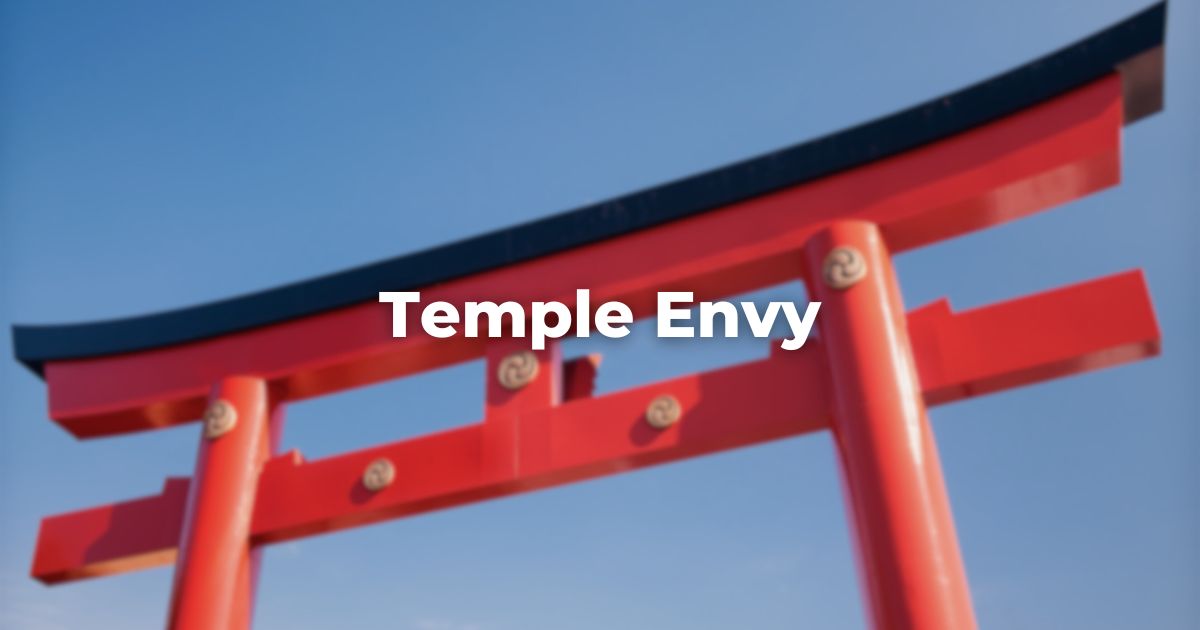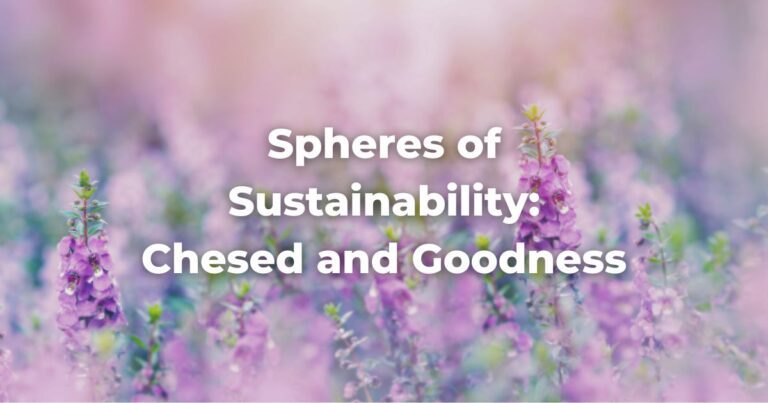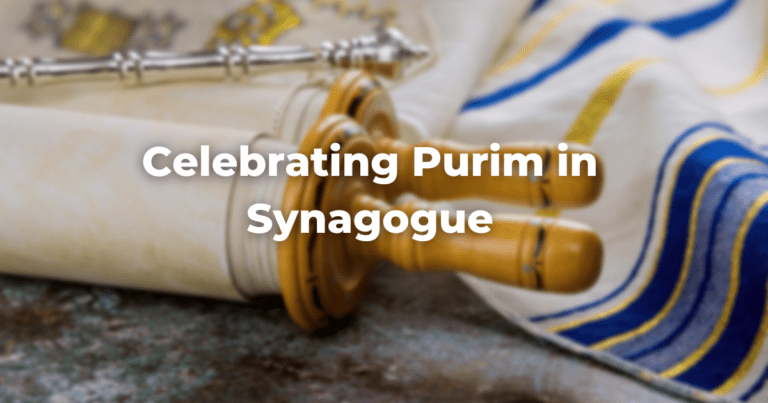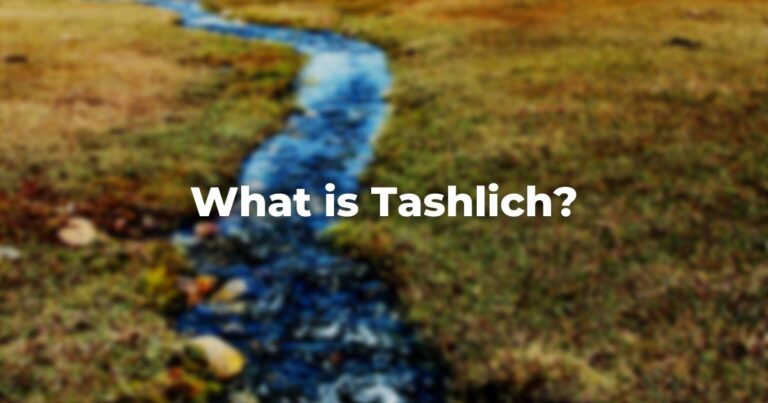Over Presidents’ Day weekend, my wife and I went to Nikko, a mountain resort town in Japan.
Japan is largely two religions: Zen Buddhism and Shintoism. Buddhism is a very icon heavy tradition with lots of different idols of the Buddha and other spirits and gods within their tradition. Shintoism is largely nature based. There will be a shrine to the spirit of a given forest or mountain. Shinto shrines will be marked with the iconic Torii gates, which symbolically mark the transition from the mundane to the spiritual.
Early on into my tour in Japan, I made the decision to enter the Shinto Shrines and Buddhist Temples and see how others worshiped. I would not actively engage in their worship.
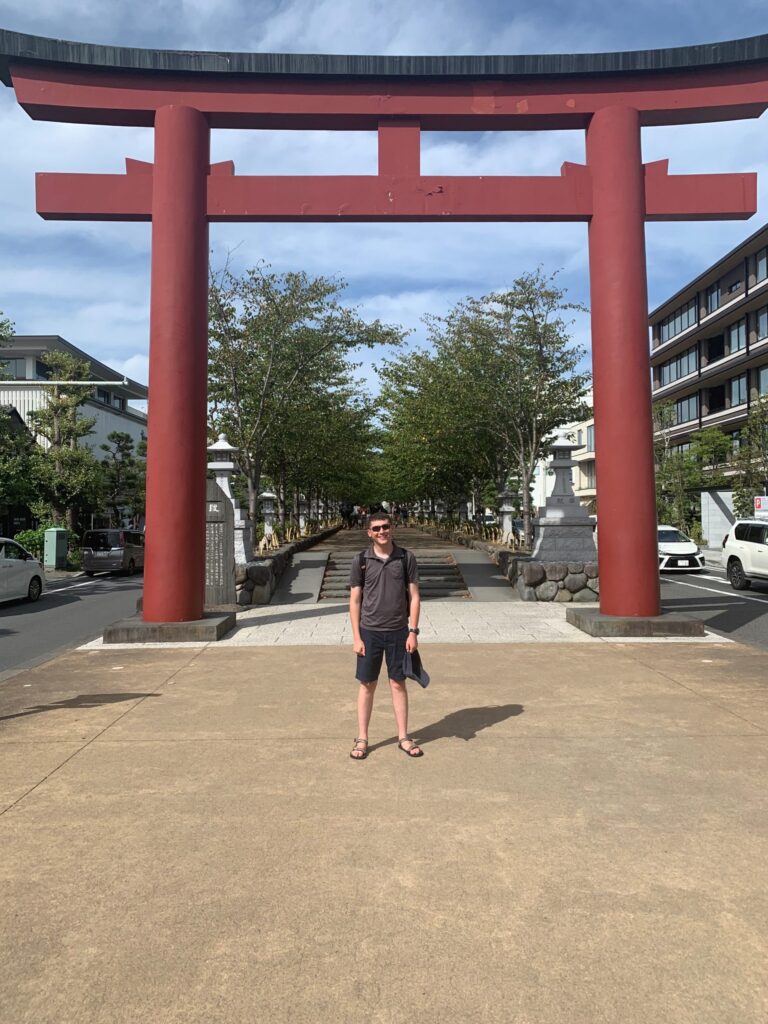
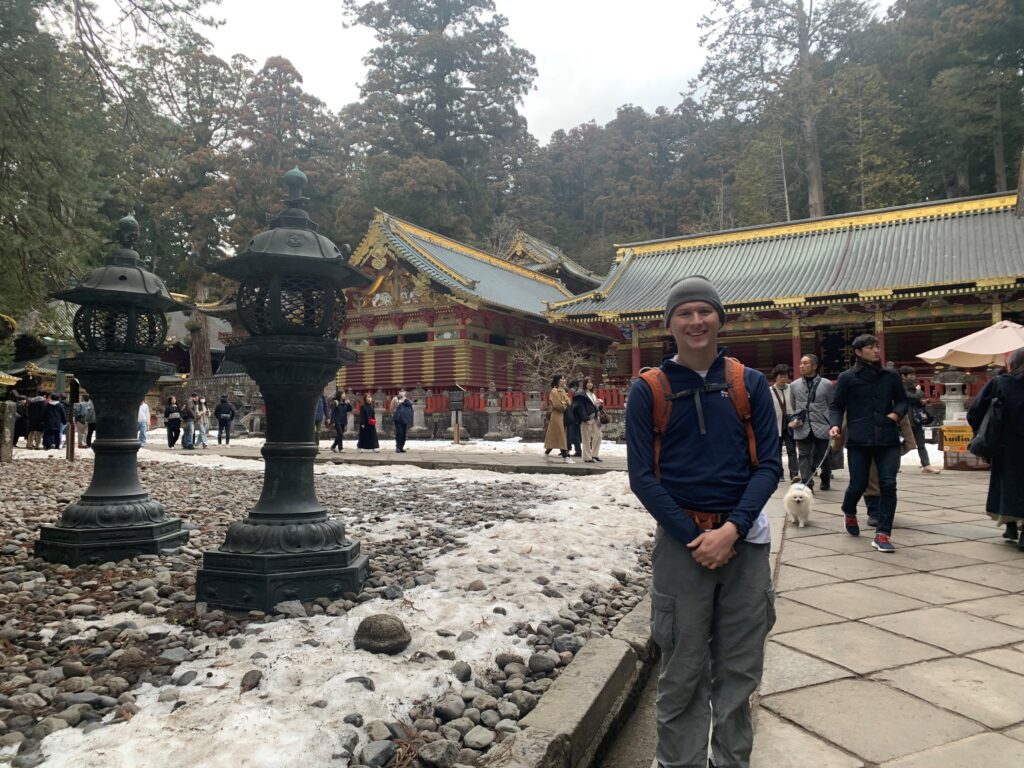
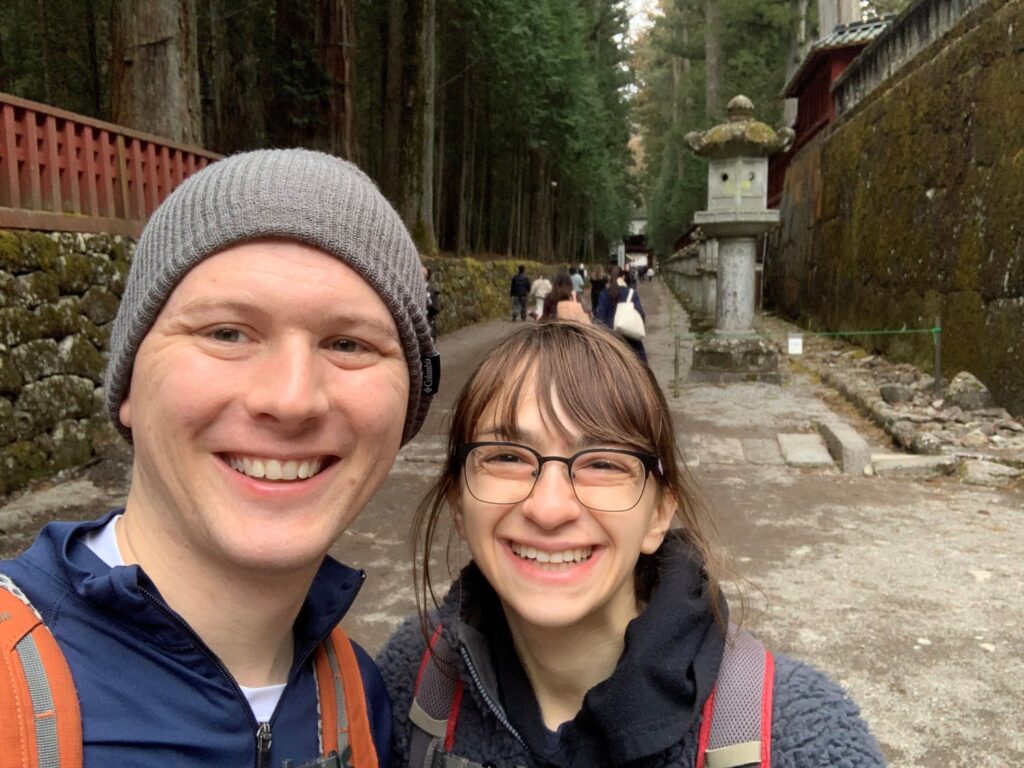
Experiencing Temples—and Temple Envy
These shrines and temples are sometimes quite humble and unfinished, but many are ornate works of art. The architecture is amazing. Color and beauty. They also become a tourist for the local Japanese. One can buy a small notebook and get it stamped along the way with a mark unique to that shrine or temple. These shrines and temples are everywhere. It also means that there is no singular place for individuals to go. Nikko has a very large complex with their most important and prominent shrines and temples. The most famous is the origin of the monkeys which tell us to “see no evil, hear no evil, speak no evil.”
When we were exploring the shrines and temples in Nikko, in the cloud-enshrouded mountains, I could not help but feel some “temple envy.” My Japanese neighbors would go anywhere and have their ornate pilgrimage sites. Perhaps it is being a rabbi in Japan, far removed from other Jews that I began to feel this sadness: Where is my temple? Where can I pop in and give an offering when I am happy or sad or feeling grateful?
Sure, Jews have prayer, but the inability to give something helped me to realize my sadness was “temple envy.” We as Jews are so removed from our Temple that we have forgotten what it means to have a place to go. I was feeling the sorrow over the loss of the Temple. It was an emotion of longing. It was also a strange form of grief. How can you mourn something you, nor anyone you’ve ever met, has had the opportunity to actually meet, touch, and experience?
Where is our Temple?
While I do pray for a third Temple, I also do not advocate for the violence that would ensue if the Jewish people were to actively work to rebuild it. This compounds that envy and grief. Not only is it something that I want and pray for, it is something my neighbors get that I do not, and I know that it is unlikely that I will ever get to experience this.
Part of what beleaguers the Jewish community is our infighting. Perhaps it is along theological or halachic lines. Perhaps it is along the best path forward for the State of Israel. This infighting is exactly what the TalmudReferring to one of two collections, the Jerusalem and Babylonian Talmuds, edited in the 6th century, that contains hundreds of years of commentary, discussion, and exploration of the ideas in the Mishnah. One could describe it as Mishnah + Gemara = Talmud Read more tells us that destroyed the last Temple in 70 CE.
In my imagination, the Third Temple is a higher form of our spiritual identity. It would act as a form of unifying the Jewish people into the foundational truth of the Shema:
“Hear! O Israel! HaShem is our god, HaShem is one”
By saying HaShem is “our god” it means that God and our unique relationship unites us. And because there is only one god, our God, we should therefore be unified.
Author
-
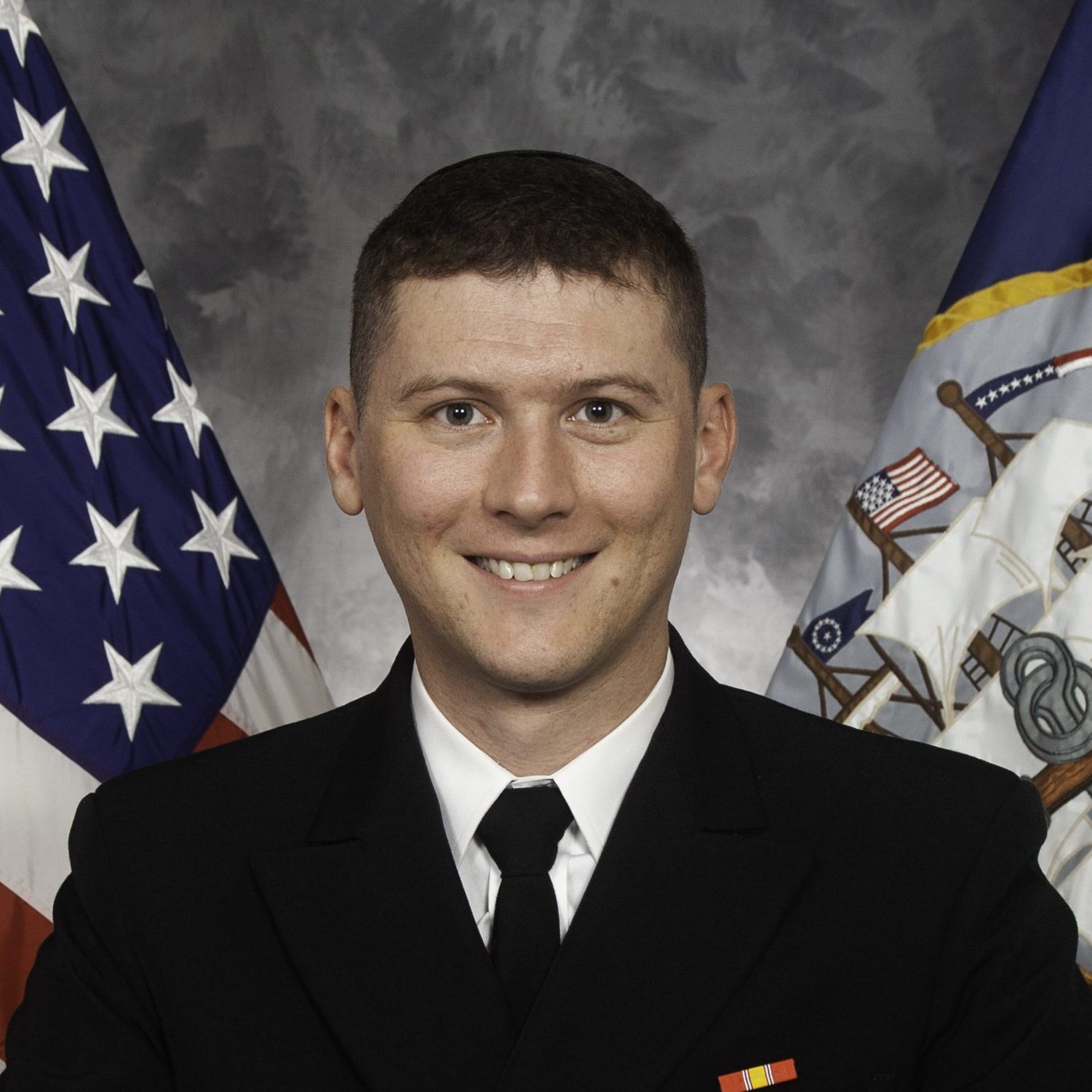
Rabbi Alex Hamilton was raised in Oklahoma City at Emanuel Synagogue. He graduated Phi Beta Kappa from Rutgers University, where he served as president of the largest Hillel in North America. He studied for a year of intense learning at Yeshivat Hadar in New York City. He graduated in May 2023 from JTS where he also received a Masters in Hebrew Bible. He is currently serving as an active duty Navy Chaplain in Yokosuka, Japan. He is a USY, Ramah, Nativ, and Conservative Yeshiva alum. He happily married Adeena in September of 2020 and they recently adopted a black lab named Buddy.
View all posts

